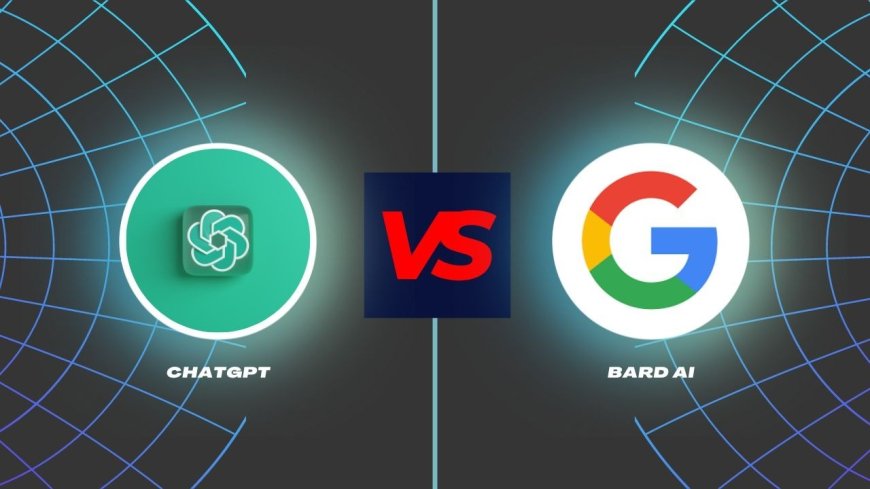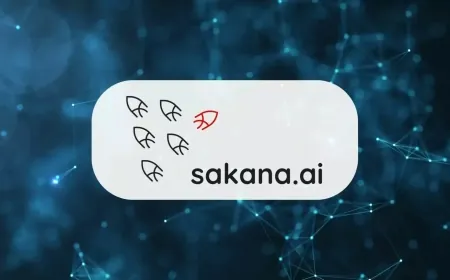Google BERT vs. ChatGPT: Which AI Language Model Reigns Supreme?
Uncover the Clash of AI-Language Models: Google BERT vs. ChatGPT. Delve into the features, strengths, and applications of these powerful models to determine the ultimate winner in this informative article.

Artificial intelligence has revolutionized language processing, with Google BERT and ChatGPT emerging as powerful language models. In this comprehensive and original article, we compare and contrast these models to help you navigate the complexities and understand which one is better suited for your needs. We delve into their architecture, training approaches, contextual understanding, strengths, limitations, and future possibilities, providing unique insights into the world of AI language models.
Google BERT and ChatGPT:
Google BERT (Bidirectional Encoder Representations from Transformers) and ChatGPT (Generative Pre-trained Transformer) are groundbreaking language models that leverage the power of transformer architectures to comprehend and generate human-like text. While Google BERT is designed for a wide range of language understanding tasks, ChatGPT specializes in generating coherent and contextually relevant responses.
Understanding the Differences:
Google BERT stands out for its ability to understand language in context by considering both preceding and succeeding words. It excels at tasks such as sentiment analysis, named entity recognition, and question answering. On the other hand, ChatGPT focuses on generating text and is trained to engage in conversational interactions, making it well-suited for chatbots and creative writing tasks.
Strengths and Applications of Google BERT:
Google BERT's contextual understanding enables it to grasp nuances and provide accurate responses in various applications. Its proficiency in sentiment analysis allows businesses to gauge customer feedback effectively. Additionally, Google BERT has significantly influenced search engine optimization (SEO), leading to more precise search results and improved user experiences.
Advantages and Applications of ChatGPT:
ChatGPT's generative capabilities make it an impressive tool for producing creative content and engaging in conversational exchanges. Its natural language generation abilities find application in virtual assistance, customer support chatbots, and generating captivating narratives. ChatGPT's versatility in generating human-like text makes it a valuable asset for content creators and developers.
Limitations and Challenges:
While Google BERT and ChatGPT are highly advanced, they have certain limitations. Both models may struggle with understanding context in complex sentences or ambiguous language, occasionally producing inaccurate or nonsensical responses. Bias is another challenge, as language models can inadvertently reflect societal biases present in the training data. Implementing these models can also require substantial computational resources, limiting accessibility for some users.
Which Model is Better?
Determining the better model depends on the specific use case and requirements. Google BERT's contextual understanding makes it a go-to choice for tasks involving accurate language comprehension, while ChatGPT's generative capabilities shine in conversational interactions and creative writing scenarios. In some cases, a combination of both models may be ideal to leverage their complementary strengths.
Future Developments and Possibilities:
The future holds exciting possibilities for AI language models. Researchers and developers are actively working to enhance contextual understanding, address bias issues, and improve ethical considerations. Continued advancements will likely lead to even more powerful and versatile language models, transforming various industries and applications.
The Human-AI Partnership:
While these models are impressive, they still require human involvement to achieve their full potential. Human input helps fine-tune and validate responses, ensuring accuracy and reliability. The human-AI partnership plays a significant role in harnessing the power of these language models effectively.
Expert's Opinions on ChatGPT and Google BARD AI:
Experts generally regard ChatGPT highly for its impressive generative abilities in conversational contexts. The model has shown great promise in producing coherent and contextually relevant responses, making it a valuable tool for applications such as chatbots and creative writing tasks. Experts often commend ChatGPT for its natural language generation and its potential to enhance user interactions and experiences.
On the other hand, Google BARD, also known as Bidirectional Encoder Representations from Transformers, has gained recognition for its robust contextual understanding of language. Experts highlight BARD's bidirectional modeling, which allows it to consider both preceding and succeeding words, enabling a more comprehensive grasp of textual context. This aspect proves useful in tasks like sentiment analysis, named entity recognition, and question answering.
Experts generally agree that both ChatGPT and Google BARD have their own unique strengths and areas of expertise. ChatGPT's generative capabilities make it well-suited for creative writing tasks, interactive conversations, and content generation. Google BARD, with its contextual understanding and bidirectional modeling, excels in tasks that require precise language comprehension and analysis.
Conclusion:
Google BERT and ChatGPT represent the cutting edge of AI language models, each with its unique strengths and applications. Google BERT excels in contextual language understanding, sentiment analysis, and SEO, while ChatGPT shines in generating engaging conversations and creative content. The choice between the models depends on your specific needs, and considering factors like contextual comprehension requirements and computational resources is crucial. As AI language models continue to evolve, responsible development and ethical considerations will play vital roles in harnessing their potential for the benefit of society.
Also Read: Google DeepMind CEO Predicts AI Will Achieve Human-Level Intelligence Within 5 Years
































































